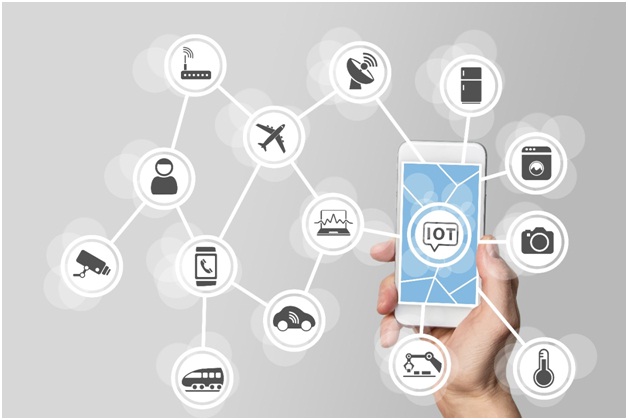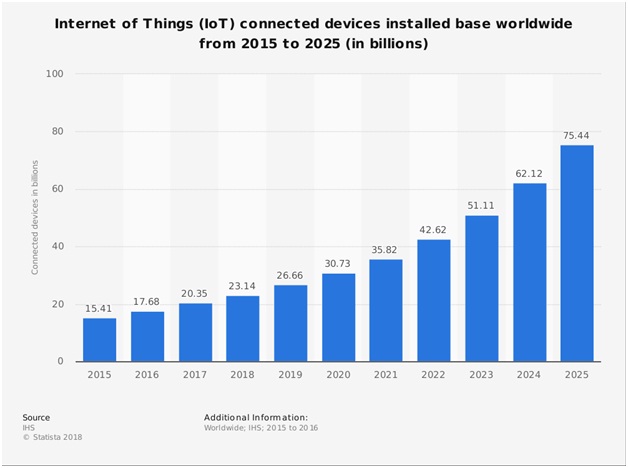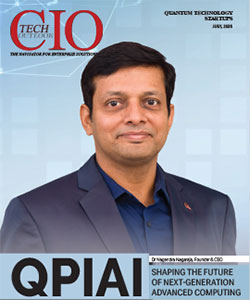IoT Network Integrators Poised to Make Businesses Future Ready
CIOReview Team | Monday, 03 June 2019, 10:35 IST

A refrigerator which messages the list of veggies its owner needs to buy on a Friday.
A car which sends the part requests to the service center before the service.
An aircraft engine that communicates with ground crew about which part needs maintenance after each flight.
Or, a fully automated plant posting a request for inventory to the vendors.
It all sounds more like a scene from a sci-fi movie. But scenes such as the ones mentioned above are closer than they sound. Automobile and consumer electronics manufacturers have been building products with connected features for some time now.
In recent years, IoT has seen a rejuvenated interest of both product manufacturers and homeowners. As a result, the world is poised for the next IT revolution where IoT takes center stage.
To the uninitiated, the Internet of Things or IoT is the use of network sensors in various devices that allow remote control and monitoring. The technology has gained massive attention in the past few years. Stats from Statista suggest that the number of IoT connected devices by 2025 will be a whopping 75.44 billion.

IoT has helped manufacturers in not only creating customer-centric products but also reduce difficulties in the production. For instance, delay in work due to malfunctioning of equipment has been a long-standing problem in the manufacturing industry.
The integration of IoT in the manufacturing industry can help in reducing these problems. Businesses will be able to implement IoT solutions using neural network integrators that use LPWAN technologies.
Now the question arises, what are LPWAN Technologies?
LPWAN or low power wide area network is a set of wide area wireless networking tech that connects battery-powered, low-bandwidth devices that have low bit rates over a more extended range.
The key benefit of using these technologies is that they provide an option to support many connected devices over a wider area with low-cost and better efficiency than the local mobile networks.
LPWANs design is primarily for M2M or Machine-to-machine networking. It is being used widely for things like monitoring industrial equipment, tracking various resources and assets and collecting data from various smart instruments. It will also solve the problems of managing a large number of connected devices without causing a downtime while reducing the energy costs.
How IoT Network Integrators Can Help Businesses In Becoming Future Ready?
IoT network integrators are soon poised to become the need of the hour. Every industry right now is looking for solutions that can help them in reducing downtime and extra costs. These integrators will be determined in the future where new products and services will be delivered at a reasonable ROI.
1. Reduction in Operating Costs
IoT solutions derived from the network integrators will help firms in cutting costs and maintaining an advantage over competitors. The devices will be used to monitor equipment properly reducing downtime and predicting misalignments in the production line. Business will also be able to reduce their energy costs and enhance electrical efficiency through these systems.
2. Understanding the Behavior of Customers
A proper understanding of the customer requirements and preferences is the key to success for any enterprise. With IoT network integrators, enterprises will be able to collect, manage and analyse data. It will allow analysts to predict the trends that will change the products and services.
3. Enhance Efficiency and Improve Productivity
Maximising efficiency and productivity is a high priority for enterprises to ensure that their business makes money. IoT network integrators will help industries in accurately assessing the demands of the customers. It will assist in providing information about technical glitches, enable remote troubleshooting and automate remote functions. Thus, allowing the business to increase their productivity.
4. Improve Customer Experience
Flawless customer service is the key to success. IoT solutions will help consumers in monitoring air conditioning, lights and televisions through their smartphones. They will also help the manufacturers of such products in understanding their customer better.
Moreover, these smart devices will inform the company if there is a technical glitch in them. Once the information of a glitch is received, the company can send agents to fix these glitches at their customer’s house. Reducing the need for the customer to call the company and therefore, improving the customer experience.
What About the Data Generated?
While IoT network integrators will be the key determinants in the future of businesses, so will be the data generated by them.
Enterprises will need co-location data centre facilities to store the sheer amount of data collected by these devices. For providing their customer’s seamless access to information, organisations will need to search for data centre providers who can give them 99.982 percent uptime.
STT GDC India is one such example of data centre providers who provide high uptime to its clients. It's sustainable and IS 270001 certified data centres can help in enhancing the seamless user experience.




